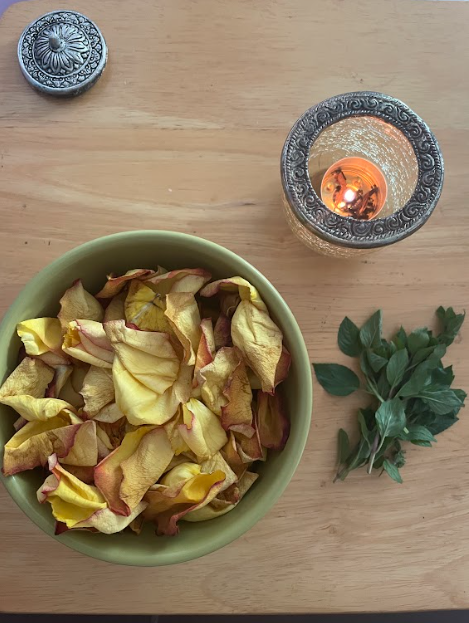Abolition Starts With You (and Me)
“THE ONLY ONE THAT CAN TAKE YOU OUT OF THE GAME IS YOU. DON’T DO IT.”
— Danielle Cohen
The Exhaustion of Trying to Be Good
Hello Courageous Thrivers,
Are you feeling worn down?
Maybe it’s “just” daily life that’s doing it — the dishes, laundry, getting out of bed and showering stuff of life that is sooo tedious and never seems to end.
Maybe it’s your news feed.
Seriously — there are armed ICE officers going into childcare programs and violently dragging teachers out in front of young children?
Maybe you live in a body that’s been targeted by violence — or the threat of it — your whole life.
If you’re reading this, that’s probably the case.
Maybe it’s all of it.
Trying to be good is exhausting.
It might be time for you to stop.
“Building for abolition does not mean a world free of violence.
Rather it acknowledges that prisons and policing are not a just, efficient, or moral solution to the problems that shape violence and lack in communities.”
— Erica R. Meiners, Ph.D., For the Children? Protecting Innocence in the Carceral State
From Perfectionism to Liberation
Yesterday, for the first time, I named my work in the world — my medicine — as being part of a broader abolition movement.
It’s a movement that seeks to create a culture in which the prison industrial complex simply cannot exist.
And that starts with you.
And me.
It starts with us practicing with ourselves and each other what it looks like when we take shame, punishment, and violence off the table.
Practicing Abolition in Everyday Life
How violent are the thoughts you aim at your body when you look in the mirror?
How harmful is the perfectionism and shame that requires you to ignore the cries of your body — as you force it through the day fueled on caffeine and sugar (because seriously, how else is it possible — or maybe that’s just the way I’ve done it)?
How constant is the surveillance — of the God you grew up with, or the social justice community you’re part of, or the holiday expectations of your family?
Is there ever a time when you’re not “being watched”?
In writing these words, I in no way want to indicate that I know what it’s like to live in a physical, built prison.
But I do see the web of connection.
I do see how the micro connects to the macro here.
Because when we become comfortable controlling ourselves through shame, punishment, and deprivation, it’s not too far of a stretch to do that to others — or to turn the other way when it happens.
We become part of the air that breathes life into systems we consciously find abhorrent.
A Gentle Invitation to Begin
So today, my challenge to you is to join me in the abolition, liberation, and healing movement.
Start with kindness and self-compassion toward yourself.
Then try stepping back from the impulse to fix or control your child, partner, or friend when they aren’t doing life the way you think they should.
In doing so, you’ll take a little more wind out of the sails of this hugely harmful system we have co-created — often unintentionally — but that continues to cause immense harm.
Sending you much love.
Here’s to thriving for equity,
I’d love to hear from you — email me and tell me how this lands.
Deb
Reflection: Abolition, Self-Compassion, and Everyday Life
Q: How does abolition connect to self-compassion?
A: Both ask us to remove punishment as a reflex — first toward ourselves, then toward others.
Q: What does practicing abolition in daily life look like?
A: Beginning where control and shame show up: in our bodies, our homes, and our relationships.
Q: How can rest become part of abolition?
A: By refusing to measure worth through productivity — rest is recovery, not laziness.
If this reflection resonated, and you’re ready to explore what abolition and self-compassion can look like in your everyday life, learn more about my 1:1 coaching.
